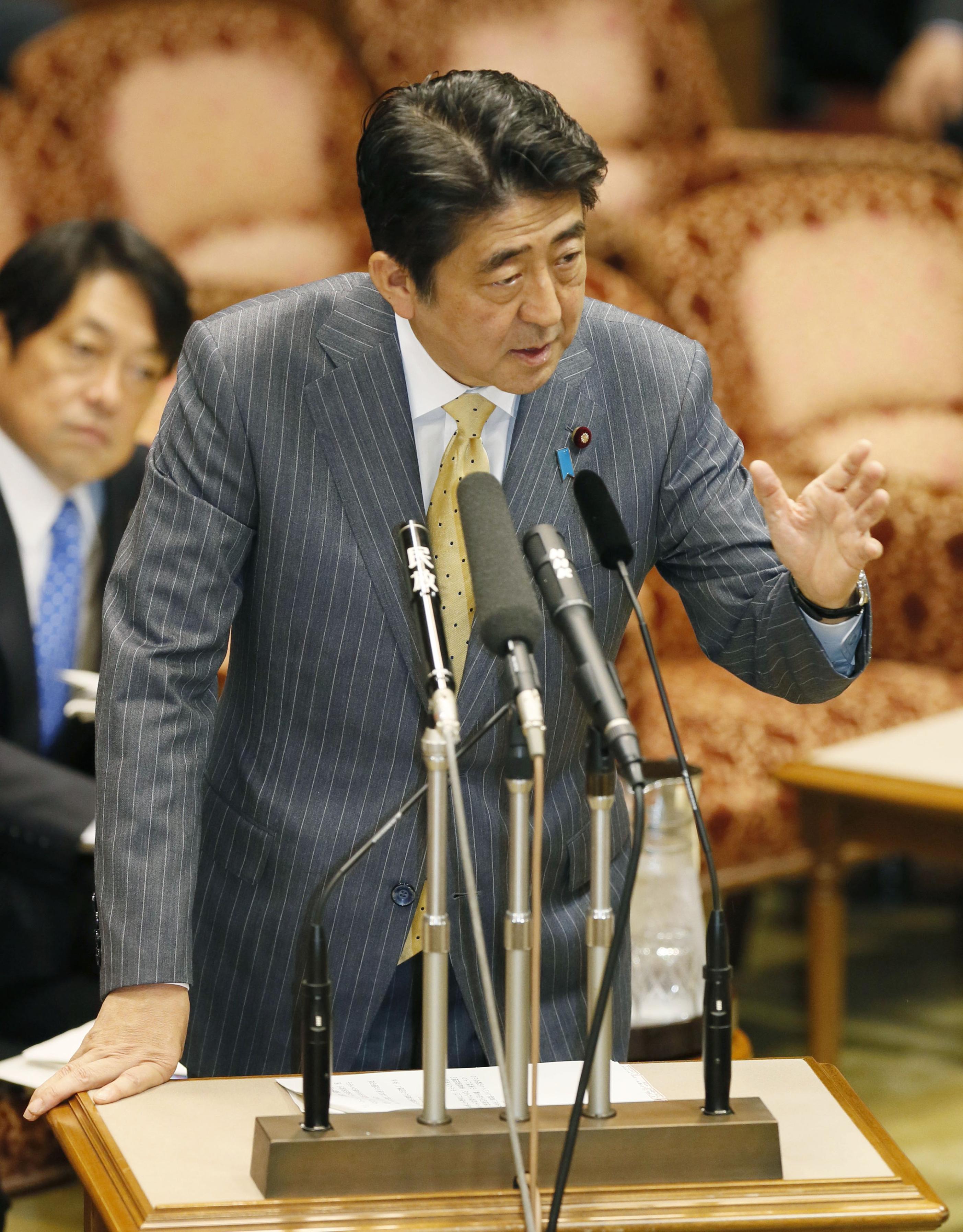- California Assembly OKs highest minimum wage in nation
- S. Korea unveils first graphic cigarette warnings
- US joins with South Korea, Japan in bid to deter North Korea
- LPGA golfer Chun In-gee finally back in action
- S. Korea won’t be top seed in final World Cup qualification round
- US men’s soccer misses 2nd straight Olympics
- US back on track in qualifying with 4-0 win over Guatemala
- High-intensity workout injuries spawn cottage industry
- CDC expands range of Zika mosquitoes into parts of Northeast
- Who knew? ‘The Walking Dead’ is helping families connect
Abenomics has Japan outperforming Korea
By Yoon Ja-young
After the implementation of ”Abenomics,” Japan is outperforming Korea in economic indices.
Economists point out that Korea’s new economic team should learn a lesson from Japan, which successfully coordinated diverse policy measures to boost consumer sentiment.
Abenomics aims at putting the economy back on a recovery track through aggressive quantitative easing, boosting consumer sentiment, expanding corporate investment and a weak yen policy.
While evaluations diverged sharply over the unprecedented amount of monetary easing, the market is turning more positive to Abenomics on improving economic indices.
Improving indices
Japan saw consumption in the private sector pick by 2.2 percent in the first quarter, which is the biggest growth since 1997. Plant investment grew by 7.6 percent.
That contrasts with Korea, where private consumption grew by only 0.3 percent and plant investment decreased by 1.3 percent.
Japanese companies marked record high operating profits last year, with combined net profit jumping by 51.2 percent. Korean companies listed on the KOSPI, meanwhile, saw operating profit grow 4.9 percent, and their net profit fell by 4.4 percent.
On strong performances and a positive outlook, Japan’s Nikkei 225 index rose by 46.4 percent from 2012, while the KOSPI gained only 1.1 percent.
Lee Seung-woo, an economist at KDB Daewoo Securities, said that the easing of consumer sentiment and the likelihood of Abenomics’ soft-landing are behind the bullish Japanese stock market.
“The views on Abenomics turned positive as the consumption tax hike in April isn’t likely to follow the footsteps of the hike in 1997. The economic outlook is not bad and the asset price is also stable. The rise in wages and the solid support rate for Abe are also helping the soft-landing,” Lee said.
The Abe administration raised the consumption tax rate to 8 percent from 5 percent in April, for the first time since 1997 when it was raised from 3 to 5 percent, but economists say Abenomics has succeeded in sustaining it so far.
Lee also pointed out that the land prices in the six major cities have risen for the first time in six years. Construction of homes thus marked the biggest increase last year since the collapse of the bubble.
“The asset price is crucial as it is the starting point of the long-term and complex recession in Japan. When the asset price is stable, the vicious circle is much less likely to repeat,” he said.
He added that the rise in wages also helped boost consumer sentiment despite the consumption tax hike.
Korea Economic Research Institute vice president Bae Sang-kun said the government should learn from Japan.
“It is still too early to determine whether Abenomics has succeeded or not, but we should note that the Japanese government used all possible policy measures, concentrating on boosting the economy, and implementing them with strong leadership while communicating with people,” he said.
He said the Korean government, meanwhile, suffered poor efficiency in its economic policies recently. “While each expert would have different ideas on each policy, the government lacked the drive to implement them. It also made little effort to communicate and make the people understand.”
Bae said while new Finance Minister Choi Kyung-hwan seems to have strong leadership, he also should focus on communicating with people, making them understand the government’s position. “Economic recovery depends on how the economic players feel. The government should arrange for overall coordination of businesses and the people,” he added.













![일본 사도광산 [서경덕 교수 제공. 재판매 및 DB 금지]](http://www.koreatimesus.com/wp-content/uploads/2024/07/PYH2024072610800050400_P4-copy-120x134.jpg)


